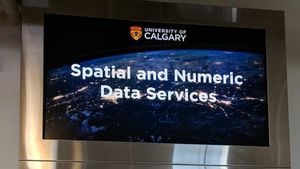A second discontinuity for vendors is the double-edged sword of creating true interoperability while selling unique value. Customers want open systems using open standards, but the very act of truly achieving this commoditizes the proprietary value of a system’s uniqueness. Community source projects also create viable reference implementations of open standards that favor no particular company. With these reference implementations, customers who want to mix and match commercial and community source software will have an unprecedented tool to enforce real interoperability beyond contradictory claims of supporting open standards. [EDUCAUSE REVIEW | July/August 2004, Volume 39, Number 4]
This is an interesting perspective from Brad Wheeler from Indiana University. It is worth thinking about when looking at the current situation with library portal/metasearch activities.
This comment is embedded in a wide-ranging discussion of open source in higher education.
Developing sustainable economics and advancing the frontiers of innovation are the dual challenges for application software in higher education. Sustainable economics means that an institution�s base budgets can support the licensing fees, developers, maintenance, training, and support required for application software. For example, it means that the viability of a course management system (CMS) is not dependent on the next grant or on a one-time budgetary accommodation. Since making changes to application software invokes cost, minimizing change is one tactic for achieving sustainable economics through lower IT costs. In higher education, however, the creative nature of colleges and universities motivates faculty and staff to innovate with new pedagogy and with the use of online resources. Application software that fails to evolve or to allow experimentation and innovation in teaching is unlikely to be well received.[EDUCAUSE REVIEW | July/August 2004, Volume 39, Number 4]



